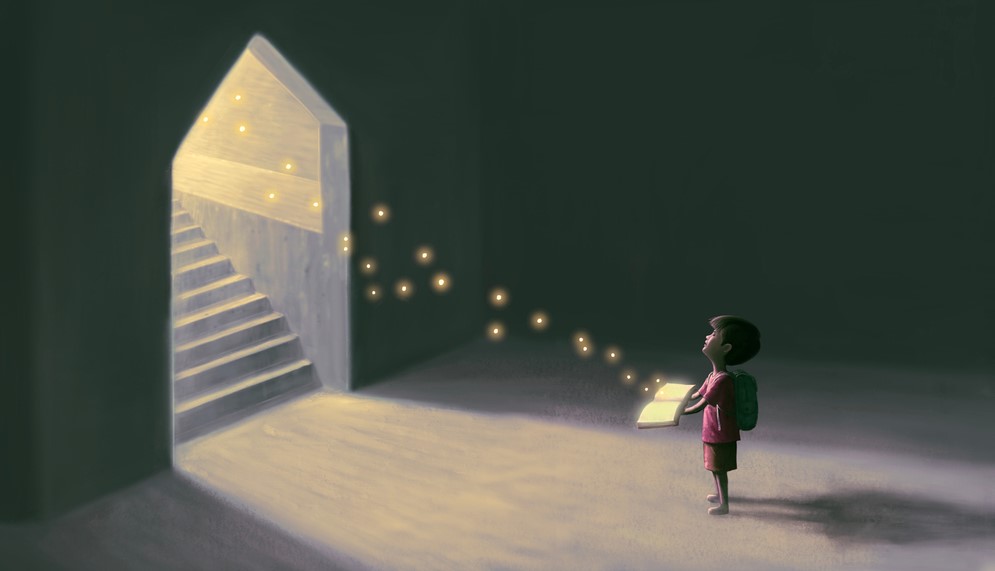Faith
Why Your Prayers Matter — Even When You Feel Stuck
Understanding the Power of Persistent Prayer, Emotional Fatigue, and Why G-d Sometimes Waits to Answer
 (Photo: Shutterstock)
(Photo: Shutterstock)You’ve prayed countless times, made every practical effort you could think of, taken on spiritual commitments and strengthened yourself in hopes of receiving salvation, but still, your situation hasn't improved.
One person is praying for a soulmate, another, for children. Some are just trying to make it through the month financially. Someone is praying for healing, hoping the next test results will show improvement, while another is begging for help with their child. Someone else is pleading for peace at home, which is emotionally breaking them. The Jewish people are still in exile, and our troubles are many.
How can a person continue praying when all hope seems lost? Besides, if G-d knows what we want and need, why do we need to pray at all?
To this question, the Maharal answers in his commentary Gur Aryeh on the Torah (Bereishit 2:5). Rashi explains that during Creation, G-d did not send rain until Adam prayed for it. Obviously, G-d knew that rain was necessary and that Adam needed it to survive. The Maharal explains that only after a person recognizes the goodness in something and prays for it can it descend from heaven, so until Adam acknowledged the value of rain and prayed, it did not fall. The Maharal writes: “If he didn’t pray for it—even more so [that] the rain wouldn’t be given. For the person knows the benefit, and still doesn’t pray—that makes him ungrateful.”
This teaches us a significant spiritual principle: Without prayer, the good things we want can’t reach us, even if G-d wants to give them. Nothing good descends from heaven unless someone prayed for it.
R’ Yosef Albo, in Sefer HaIkkarim (Maamar 4, Chapter 18), writes: “Effort in doing good and preparing the vessel is essential to receive divine influence…That’s why prayer and worthy action are needed—to prepare the individual to receive divine abundance or remove harsh decrees.” Prayer is what creates the vessel to receive the divine blessing.
 (Photo: shutterstock)
(Photo: shutterstock)Moses prayed 515 times to enter the Land of Israel, until G-d stopped him and told him not to continue, because it was not His will. Everything in the world has a fixed number of prayers that can bring it into being. If Moshe had prayed just one more time, he would have entered the Land. We don’t know the number written on our personal salvation note, but there is one—and if salvation hasn’t arrived yet, it means we’re not there yet. Once we reach that number—G-d willing—it will come.
Does G-d need our prayers?
No, but He desires our connection. The lack in our lives draws us closer to Him. When something is missing, we lean on G-d more, we feel His presence more, because we know that despite all our efforts, only He can truly help us. That dependence fosters a deeper connection. As the Midrash says, “G-d longs for the prayers of Israel” (Yalkut Shimoni). The lack was created in the first place, so that we would turn to Him.
The exhaustion from praying for something that hasn’t happened yet isn’t physical, but emotional. It's the result of pain, disappointment, and hope that hasn't yet been fulfilled. It’s easier to stop talking about it, and not to touch that tender wound again. We stop wanting to pray about it because it hurts, it disappoints, and we’re afraid to get our hopes up.
We also wonder: “Will it even make a difference if I say this again?” Yes. Every prayer changes something, whether in the near or distant future, for the issue at hand or something else entirely. Prayer works, even if we don’t see it working instantly. We can avoid this emotional burnout by stopping the countdown of “When will it finally happen?”
We are obligated to make both practical and spiritual efforts which means doing everything within our power in the physical world, alongside praying, strengthening ourselves, and taking on spiritual resolutions. Then, we take a deep breath, take a step back, and remember: From here on out, it’s in G-d’s hands. He’s running the show. We must trust that the salvation will come at the exact right time.
Sometimes we don’t understand why now isn’t the right time according to G-d’s watch, but that’s where faith begins. We want it now, desperately, but sometimes we need to let go and trust that our Father in heaven knows best. The only way out of the painful fatigue is to do what is ours to do—practically and spiritually—and then trust our Father to take care of us. Until then, we keep praying, keep asking, and keep arousing mercy from heaven.
The Chafetz Chaim shares a powerful secret about prayer:
“All the suffering that we don’t escape from is because we don’t cry out and increase our prayers about them. For if we prayed and poured out our hearts before G-d, our prayers would not return empty. And one should not be satisfied with the three daily Shemoneh Esrei prayers, but should pour out personal requests from the depths of the heart multiple times a day at home” (Likutei Amarim, Chapter 10).
Prayer brings down divine mercy. Let’s keep going, until the salvation comes, trusting fully in the One who knows what’s truly best.

